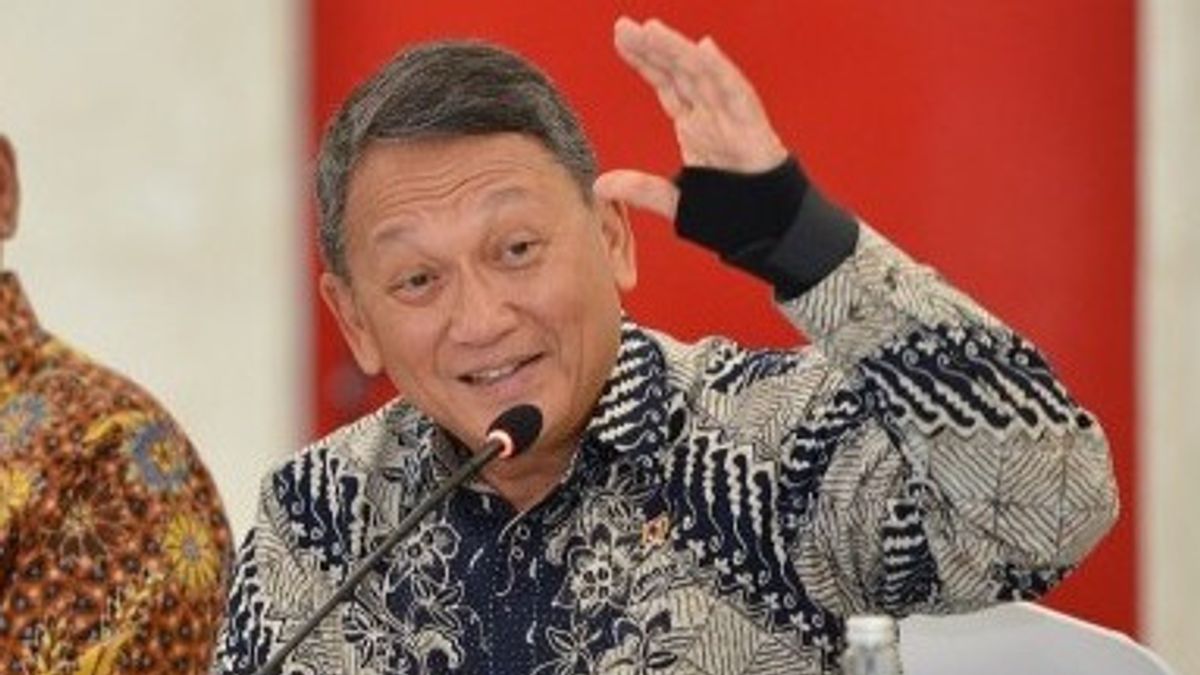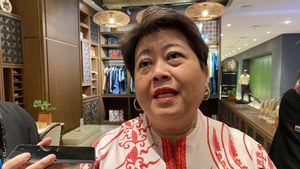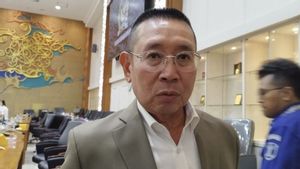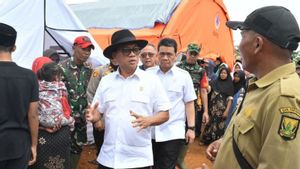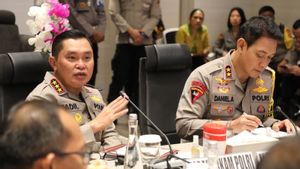JAKARTA - The Draft Ministerial Regulation (Permen) of Energy and Mineral Resources related to capture technology, utilization and carbon capture, utilization and storage (CCS/CCUS) in oil and gas business activities has been completed through a harmonization process involving other ministries.
Director General of Oil and Gas Tutuka Ariadji revealed that the Permen process was still awaiting President Joko Widodo's approval before it was signed by the Minister of Energy and Mineral Resources, Arifin Tasrif.
"The process after harmonization needs presidential approval, harmonization has been completed and then waiting for the president's approval. So the stage is there. After the president agrees, the Ministry of Energy and Mineral Resources can sign the Ministerial Regulation," he said at a press conference in Jakarta, quoted Wednesday, February 1.
Tutuka added, CCS/CCUS is a new thing for Indonesia so that the preparation of regulations is carried out from design to the implementation stage.
The same thing was conveyed by Migas Technical and Environmental Director Mirza Mahendra. Mirza said CCS/CCUS technology is part of the petroleum operation, so there is no need for something special for the financing mechanism.
Mirza continued, multinational companies are currently continuing to be encouraged to shift their investment to environmentally friendly activities and for the oil and gas sector, CCS/CCUS technology is most appropriate to inject CO2 back into the earth's stomach to increase production.
"CCS/CCUS is one of our choices to remain committed to NZE," Mirza said.
Based on data from the Ministry of Energy and Mineral Resources, currently there are 15 CCS/CCUS projects in Indonesia that enter the study stage and are expected to be fully onstream before 2030. Of all these projects, the Tangguh EGR/CCUS Project managed by BP Berau Ltd, is most advanced compared to other projects and is targeted to be onstream 2026 with a potential CO2 of 25-32 million tons for 10 years. The potential storage of CO2 in Indonesia is around 2 giga tons of CO2 spread across various regions in the country.
Regarding the injection of CO2 into wells to increase oil and gas production, on October 26, 2022, a trial of CO2 injection into the JTB-161 well at Pertamina EP Jatibarang Field in Indramayu, West Java has been carried out. The inauguration of the first injection of CO2 into the JTB-161 well was carried out by the Director General of Oil and Gas Tutuka Ariadji.
In carrying out this CO2 injection trial, Pertamina collaborated with Japan Oil, Gas and Metals National Corporation (JOGMEC), whose cooperation was signed in Bali on August 30, 2022, witnessed by the Minister of Energy and Mineral Resources Arifin Tasrif.
The CO2 injection was carried out from 25 to 29 October 2022 using the Huff & puff method, namely CO2 which was injected into the well for several days, closed for a week, then opened and then expected the oil or gas to rise.
"The picture is like a coca-cola drink with CO2, shaken and then the drink will go out on its own," said the Director General of Oil and Gas.
This Huff & puff method provides confirmation and validation regarding EOR technology specifically on the well scale, so it is further hoped that it can also be applied in other oil and gas fields that are actively conducting CO2-EOR study activities. The use of this method is expected to increase production by around 30-40 percent. The test results will be monitored by the end of 2022.
The CO2 injection for EOR/EGR is planned to be carried out in various oil and gas fields that have the potential for decarbonization, including Sukowati Field, Gundih, Ramba Subang, Akasia Bagus and Betung.
The English, Chinese, Japanese, Arabic, and French versions are automatically generated by the AI. So there may still be inaccuracies in translating, please always see Indonesian as our main language. (system supported by DigitalSiber.id)
